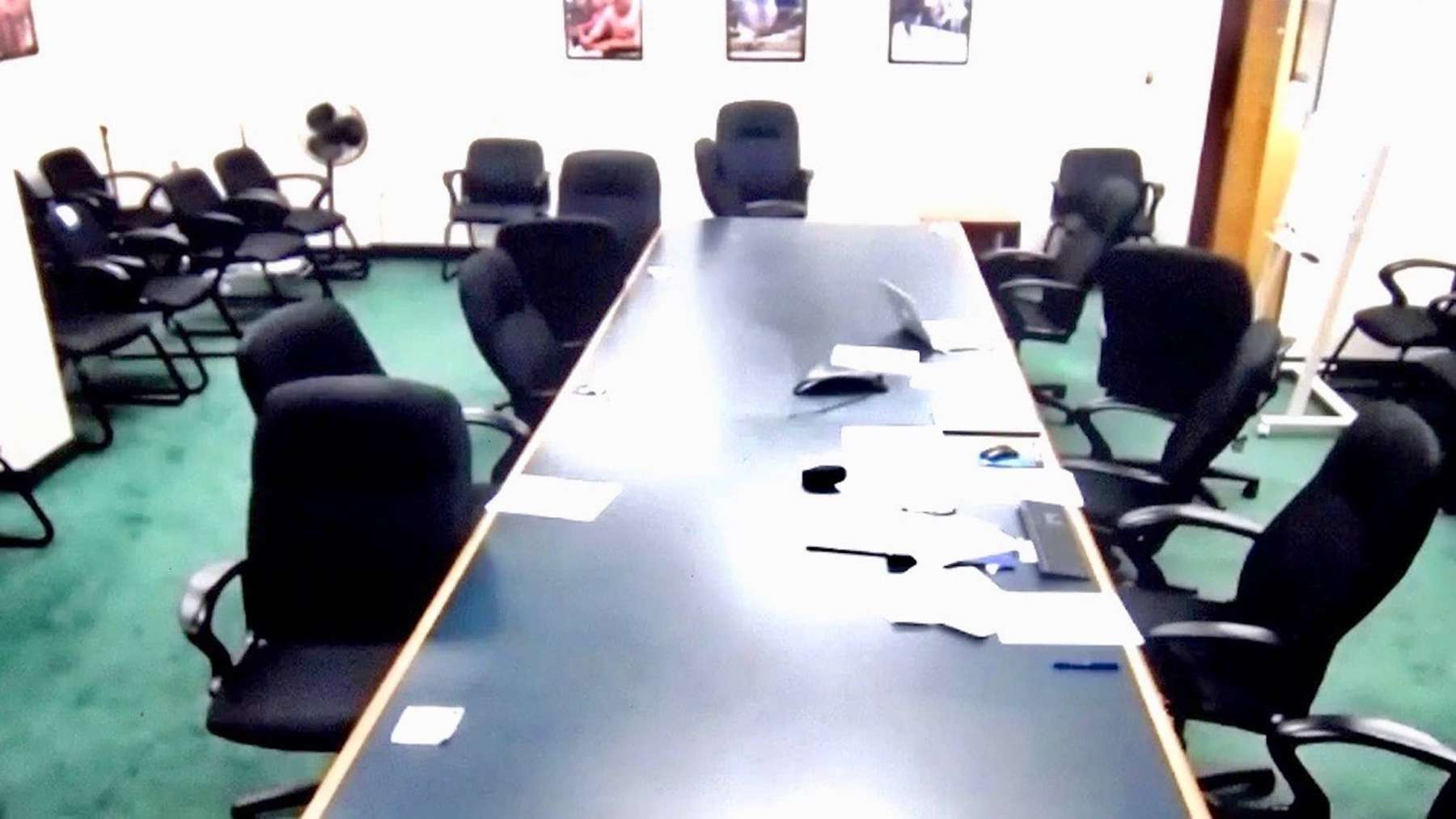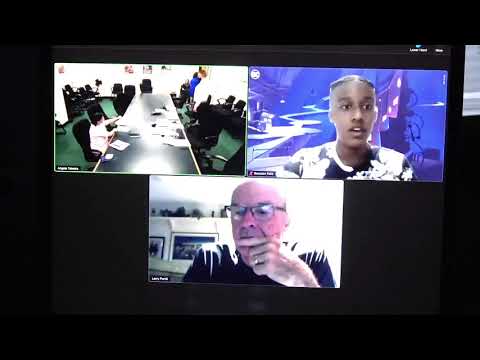RIDE quashes public participation during Zoom meeting
Public participation is a feature, not a bug of our Democracy The Rhode Island Department of Education‘s Council on Elementary and Secondary Education held a virtual rather than an in-person meeting Tuesday evening, as per Governor Gina Raimondo‘s executive order amending the Open Meetings Act. The meeting, conducted via Zoom, was held in part to discuss the school reopening plans.
July 22, 2020, 9:52 am
By Steve Ahlquist
Public participation is a feature, not a bug of our Democracy
The Rhode Island Department of Education‘s Council on Elementary and Secondary Education held a virtual rather than an in-person meeting Tuesday evening, as per Governor Gina Raimondo‘s executive order amending the Open Meetings Act. The meeting, conducted via Zoom, was held in part to discuss the school reopening plans. These plans are required from every school district in the state, and will detail various scenarios for reopening schools in the midst of the COVID-19 pandemic. Nearly a thousand people – teachers, parents, students and others – attended the meeting, many of whom were planning a “virtual protest” in the hope of having some sort of say in the way the reopening plans would be implemented.
The virtual protest was not planned to be disruptive – participants were going to hold or display signs for the council to see.
Before COVID-19 and the advent of virtual meetings, public hearings of government bodies were places where members of the public could go and let their opinions be known, whether through the official route of participating in the public speaking portion of the agenda or through their presence – large crowds of people holding signs sends a strong and powerful message.
Public meetings serve another purpose as well. At public meetings, where people gather united by a common purpose, people meet each other, exchange emails and phone numbers, sign onto lists, and general begin the process of organizing to effect change. This is an important part of exercising our human and constitutional rights: our right to assemble, our right to petition our government, our right to free speech. It’s the way Democracy works, and the way we access the levers of power in our government. This is why we have an Open Meetings Act to begin with, so the public is not reduced to being viewers of government, but active participants.
Unfortunately, the Rhode Island Department of Education (RIDE) was seemingly uninterested in public comment, Democracy, the Open Meetings Act, or the exercise of the people’s constitutional rights. Somewhere along the line the decision was made to mute all the voices of the participating in the meeting, except for those individuals who “strongly” wanted “to provide verbal comment instead of written comment.” Those 15 people were given the opportunity to speak directly to the council : for two minutes each. Some had technical difficulties and could not be heard.
Camille Nixon, whose audio did not work properly, went through all the trouble of pre-registering in order to speak, only to be cut off and told to submit her comments via email.
The Council also blocked the cameras of all the participants, therefore preventing their effort to display signs that the council could read. The “virtual protest,” a perfectly legal exercise of the participant’s first amendment rights, was blocked.
Would be participants in Democracy became spectators of autocracy.
Violating the Open Meetings Act
Toward the end of the meeting the Council decided to go into executive session to discuss RIDE Commissioner Angélica Infante-Green‘s annual performance review. This is a legitimate reason to go into executive session. Under the law, discussions of an individual’s job performance, character or physical or mental health is permitted in closed session. After an executive session, the law requires that the government body reconvene in open session.
“Everyone… who chooses to wait until the council resumes in open session will be placed on hold for an extended period of time while we’re in executive session,” said Chair Daniel McConaghy, by way of explanation. “At the conclusion of the executive session the council will return to open session and public access will resume.”
The motion was moved, seconded and voted on.
Then McConaghy and the rest of the council waited for people to log off from the meeting. After nearly four minutes, McConaghy said, “All participants, please log off.”
Here’s the problem. McConaghy had just announced that everyone attending the meeting would be put on hold. Then he told everyone to log off. If a member of the public logged off, how would they know when to log back on to see the conclusion of the meeting? How would any member of the public know what, if anything, was discussed after the meeting returned from closed session? Did the meeting close, or was it continued? Sometimes, during a closed session, votes are taken, and the results of the vote are reported out after the executive session ended. Did the Council vote during the executive session, or have anything of substance to report out to the public after the executive session was over?
Realizing that many people were not logging off, it was decided by the Council to leave the open meeting running and convene a separate and exclusive Zoom meeting for the executive session. Spectators were left watching an empty room, waiting for the Council to reconvene. That never happened. After about 25 minutes, the Zoom meeting ended.
The Council never reconvened and publicly concluded the meeting.
This is a violation of the Open Meetings Act.
Public participation is a feature, not a bug of our Democracy
At Tuesday night’s meeting, the public was not treated as a valued partner in government, they were treated as a mob that needed to be controlled, repressed and ignored. This is a shame, because with small tweaks, this could have been a productive meeting that fairly considered public input.
For instance, the Council could have listened to public comment after the discussion of the School Reopening plans, rather than before the discussion. Many of the comments that did get through, and many of the concerns expressed on social media and by various advocacy groups, could have been addressed during this discussion. Had the public comment period, in addition to being more open, had been scheduled after the presentation on the reopening plans, participants then could have made better, more insightful and on point comments.
But the public was not treated as a partner, they were treated as a chore on the Council’s to-do list, a tedious exercise to be gotten through quickly, so they could get onto the real business of the Council.
RIDE responds
As the meeting got underway, Uprise RI sent an email to Angela Teixeira, Special Assistant to the Commissioner, about the fact that people were not being allowed to be seen or heard by the Council. Teixeira replied on Wednesday morning as this story went to print:







